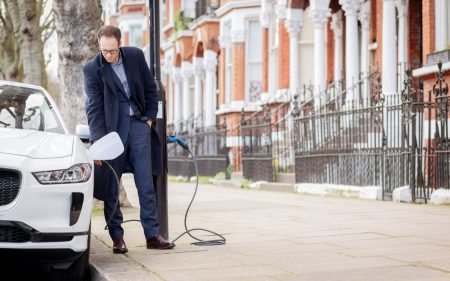Despite the rapid rise of EV sales last year, it’s still far from certain that battery electric vehicles will take over in the way that those who are rooting for them expect.
After all, there is a precedent from 20 years ago, when a rosy-looking electric future was snuffed out unceremoniously and buried in the sands of time. Could this happen again? Could the vested interests of the incumbent fossil fuel vehicle industry repeat the same destructive trick once more?
In 1999, you could lease an electric car in some parts of the USA for $399 a month, with a 142-mile range and capable of hitting 60mph in just 8 seconds. Putting this in perspective, these are similar specifications to the Honda e released last year, which shows just how advanced this vehicle was for its time. It was called the EV1, and it was a sleek two-seater you could recharge in your garage. Owners loved them, but the company that made the car, General Motors, discontinued the vehicle just a few years after its launch and forcibly recalled all the cars on the road, eventually crushing most of them. GM donated a few to museums and researchers, but disabled the drivetrains, and has even taken legal action against anyone trying to re-enable them.
The reasons for the discontinuing and destruction of the EV1 remain controversial to this day. They were covered in great detail by the fascinating 2006 documentary Who Killed the Electric Car?, which is still available from some DVD and online rental companies. The documentary sets up a whole bunch of “suspects” for the murder, ranging from lack of consumer interest, to battery technology, to oil companies, car companies, and various government bodies. Even the hype around hydrogen comes in for accusations.

At the time of the documentary, GM claimed the EV1 wasn’t economically viable, but it seems like a web of vested interests felt threatened, from oil companies fearing loss of revenue to car companies fearing the low maintenance costs of EVs. There was also a huge push from the likes of US President George W Bush and California Governor Arnold Schwarzenegger towards hydrogen as the true miracle fuel for an eco-friendly transportation future.
Fast forward 20 years and none of these pressures have gone away. The oil industry still faces a massive drop in demand for fuel if there is mainstream adoption of EVs, governments worry about the loss in revenue from fuel tax, and dealers are concerned about losing lucrative maintenance contracts. There are still scores of keyboard warriors out on social media arguing that we should wait for never-arriving hydrogen and until then keep running our diesels (or gas guzzling V8s in the USA).
But something has clearly changed, looking at the slew of automaker announcements in the last few weeks. The main culprit in the EV1 controversy, General Motors, has officially become GM and pledged to focus on electric cars, with a plan to go entirely electric by 2035. Jaguar Land Rover is also going electric by 2025, with Jaguar cars becoming entirely BEVs by 2030 and Land Rover cars 60% BEVs by that date. Ford has released one of the most promising electric SUVs yet, the Mustang Mach E, and has now stated that, in Europe at least, all its cars will be EVs by the middle of 2026. British sports car company Lotus, in the process of releasing its electric hypercar the Evija, is ending the line on its current fossil fuel models and going electric from now onwards too.
Read more: Forbes
It’s Time to Go Green!
If you would like to know more about Solar Panels and the PowerBanx range of home battery systems, and get a free instant quote, please complete our online form:

